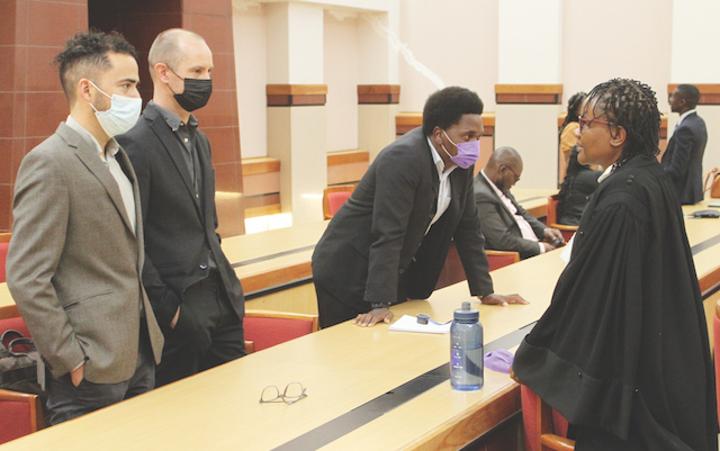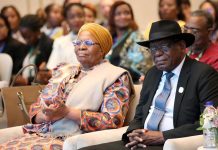Africa-Press – Namibia. A MEXICAN-BORN architect who is in a same-sex marriage with a Namibian citizen has taken his battle to be allowed to live in Namibia with his husband and their family to the Supreme Court.
In an appeal that was argued in the Supreme Court yesterday, Mexican citizen Guillermo Delgado is asking the court to overturn a High Court judgement in which an attempt by him to get legal recognition of his residence status in Namibia was dealt a heavy blow in February this year.
Delgado has lived in Namibia for more than 10 years, and has been married to a Namibian citizen, Phillip Lühl, for nearly seven years. However, because Delgado and Lühl are partners in a same-sex relationship, the Ministry of Home Affairs, Immigration, Safety and Security is refusing to give legal recognition to their marriage, which was solemnised in South Africa in December 2014.
Delgado lived in Namibia on the basis of work permits which the ministry granted to him, until he was temporarily barred from the country by an immigration official in January last year, following the expiry of his employment permit at the end of December 2019.
Delgado asked the High Court to declare that he is domiciled in Namibia. He further asked the court to review and set aside a decision of the chief of immigration and the home affairs minister to reject an application by him to be issued with an identity certificate – a document through which the ministry confirms non-Namibians’ right to be resident in Namibia.
After suffering a setback when judge Thomas Masuku dismissed his application in the High Court in February, Delgado appealed to the Supreme Court to overturn Masuku’s decision.
Chief justice Peter Shivute, deputy chief justice Petrus Damaseb and appeal judge Dave Smuts reserved their judgement after hearing oral arguments on the appeal yesterday.
Uno Katjipuka-Sibolile, representing Delgado, argued that he is domiciled in Namibia – regarding the country as his permanent home – and that the ministry has accepted that fact by issuing a “certificate of identity” to him in terms of the Immigration Control Act in June 2018. In practice, the ministry has been using certificates of identity to confirm the domicile status of non-Namibians who are resident in the country, Katjipuka-Sibolile noted.
Domicile status is of crucial importance for foreign residents of the country, as it gives them the right to stay in Namibia without needing permits, such as employment or permanent residence permits, which would otherwise allow them to live in the country.
The certificate issued to Delgado was valid for 12 months. When he applied for a new certificate after the expiry of the first one, the ministry rejected his application.
In internal records of the ministry, it was recorded that the decision to reject Delgado’s application was taken after officials in the ministry noted that same-sex marriages are not recognised by the ministry.
“The Constitution is grounded in the recognition of the inherent dignity of persons, equality and non-discrimination,” Katjipuka-Sibolile remarked.
She argued that the Constitution does not say that certain constitutional rights can be enjoyed by only heterosexual people. A stance that the ministry would grant domicile to a heterosexual person married to a Namibian citizen and not to a homosexual person also married to a Namibian is discrimination, and that is not allowed, she argued.
Senior counsel Griffits Madonsela, representing the home affairs ministry and the chief of immigration, argued that the certificate of identity which was issued to Delgado was not a certificate which confirmed his domicile status in Namibia.
Madonsela argued that Delgado cannot rely on his marriage to Lühl as basis for his claim to be domiciled in Namibia, because the country does not give legal recognition to same-sex relationships – a position which the Supreme Court itself confirmed in a judgement in 2001.
He acknowledged that there seems to be a shortcoming in the Immigration Control Act, which does not set out a procedure through which people can have their domicile status in the country officially recognised. That shortcoming is something which would have be addressed, Madonsela said.






